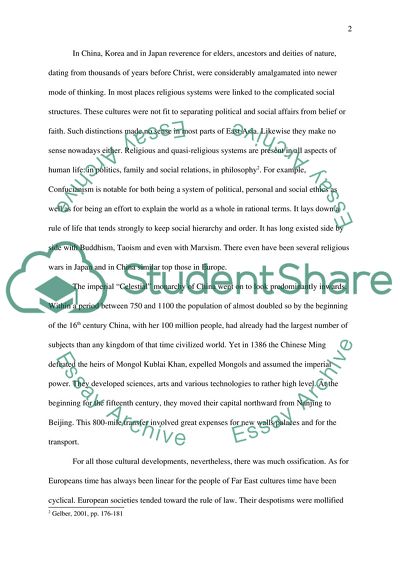Cite this document
(Did Europe Have Little Impact on East Asian Developments Prior to the Essay - 1, n.d.)
Did Europe Have Little Impact on East Asian Developments Prior to the Essay - 1. https://studentshare.org/history/1752151-prior-to-the-19th-century-europe-had-little-impact-on-east-asian-developments
Did Europe Have Little Impact on East Asian Developments Prior to the Essay - 1. https://studentshare.org/history/1752151-prior-to-the-19th-century-europe-had-little-impact-on-east-asian-developments
(Did Europe Have Little Impact on East Asian Developments Prior to the Essay - 1)
Did Europe Have Little Impact on East Asian Developments Prior to the Essay - 1. https://studentshare.org/history/1752151-prior-to-the-19th-century-europe-had-little-impact-on-east-asian-developments.
Did Europe Have Little Impact on East Asian Developments Prior to the Essay - 1. https://studentshare.org/history/1752151-prior-to-the-19th-century-europe-had-little-impact-on-east-asian-developments.
“Did Europe Have Little Impact on East Asian Developments Prior to the Essay - 1”. https://studentshare.org/history/1752151-prior-to-the-19th-century-europe-had-little-impact-on-east-asian-developments.


